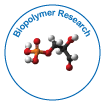Nosso grupo organiza mais de 3.000 Séries de conferências Eventos todos os anos nos EUA, Europa e outros países. Ásia com o apoio de mais 1.000 Sociedades e publica mais de 700 Acesso aberto Periódicos que contém mais de 50.000 personalidades eminentes, cientistas de renome como membros do conselho editorial.
Periódicos de acesso aberto ganhando mais leitores e citações
700 periódicos e 15 milhões de leitores Cada periódico está obtendo mais de 25.000 leitores
Indexado em
- Publons
Links Úteis
Diários de acesso aberto
Compartilhe esta página
Abstrato
Sustainable Solutions from Microbial Biopolymers: Harnessing Nature?s Potential for Eco-Friendly Materials
Xiao C
Microbial biopolymers have emerged as a promising avenue for sustainable solutions in the production of ecofriendly materials. These biopolymers, synthesized by microorganisms through fermentation or metabolic processes, offer several advantages over conventional petroleum-based plastics. This abstract explores the potential of microbial biopolymers, focusing on their sustainable production, unique properties, and diverse applications in various industries. The production of microbial biopolymers presents an opportunity to reduce reliance on fossil fuels and promote the use of renewable resources. Microorganisms can be cultivated on organic waste, agricultural by-products, or even carbon dioxide, minimizing environmental impact and resource depletion. Moreover, the fermentation and metabolic processes used in biopolymer production often require lower energy inputs compared to traditional polymer manufacturing methods. Microbial biopolymers exhibit a wide range of properties that make them attractive for different applications. For example, polyhydroxyalkanoates (PHAs) offer biodegradability, flexibility, and thermoplasticity, making them suitable for packaging, disposable items, and agricultural films. Bacterial cellulose, with its exceptional strength and biocompatibility, finds applications in medical devices, tissue engineering, and food products. Other microbial biopolymers like xanthan gum, pullulan, and dextran are utilized in the food, pharmaceutical, and cosmetic industries due to their thickening, stabilizing, and gelling properties. The utilization of microbial biopolymers for sustainable solutions is an active area of research and development. Efforts are being made to optimize production processes, enhance polymer properties, and explore novel applications. Strategies such as genetic engineering, fermentation optimization, and bioprocess scale-up are employed to increase biopolymer yields, improve performance, and reduce costs. Despite the many advantages, challenges exist in the widespread adoption of microbial biopolymers. Scaling up production to meet industrial demands, achieving cost competitiveness, and addressing regulatory and standardization issues are critical considerations. Additionally, proper end-of-life management, including recycling and disposal methods, must be established to ensure the environmental sustainability of these materials.
Diários por Assunto
- Agro e Aquicultura
- Alimentação e Nutrição
- Bioquímica
- Ciência da Computação
- Ciência de materiais
- Ciencias ambientais
- Ciências Clínicas
- Ciências Farmacêuticas
- Ciências gerais
- Ciências Médicas
- Ciências Sociais e Políticas
- Ciências veterinarias
- Economia e Contabilidade
- Enfermagem e cuidados de saúde
- Engenharia
- Engenheiro químico
- Física
- Genética e Biologia Molecular
- Geologia e Ciências da Terra
- Gestão de negócios
- Imunologia e Microbiologia
- Informática
- Matemática
- Química
Revistas clínicas e médicas
- Anestesiologia
- Assistência médica
- Biologia molecular
- Cardiologia
- Cirurgia
- Dermatologia
- Diabetes e Endocrinologia
- Doenças infecciosas
- Enfermagem
- Fisioterapia e Reabilitação
- Gastroenterologia
- Genética
- Hematologia
- Imunologia
- Medicamento
- Medicina Reprodutiva
- Microbiologia
- Nefrologia
- Neurologia
- Odontologia
- Oftalmologia
- Oncologia
- Ortopedia
- Pediatria
- Pesquisa Clinica
- Pneumologia
- Psiquiatria
- Toxicologia

 English
English  Spanish
Spanish  Chinese
Chinese  Russian
Russian  German
German  French
French  Japanese
Japanese  Hindi
Hindi